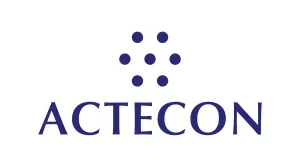The Turkish Competition Authority ("TCA") recently issued its reasoned decision1 concerning its investigation against Novartis Sağlık Gıda ve Tarım Ürünleri San. ve Tic. A.Ş. ("Novartis"), as a result of which the TCA held that the two undertakings did not violate the The Act on the Protection of Competition ("Competition Act").
The investigation was initiated based on the complaint issued by Çınar Ecza Deposu ve Dış Tic. A.Ş. ("Çınar") (a pharmaceutical warehouse) concerning Novartis's alleged violations of the Competition Act by way of preventing competition in the wholesale level of pharmaceutical industry via prohibiting pharmaceutical warehouses, which act as distributors of Novartis, from selling Novartis products to other warehouses and refusing to supply its products to Çınar.
As per Çınar's allegations, after Novartis terminated its General Sales Agreement with Çınar, Çınar was not able to sell Novartis and Alcon Laboratuvarları Ticaret A.Ş. (which is a subsidiary of Novartis active in the eyecare market) products and this significantly impeded its ability to compete with other pharmaceutical warehouses and led to loss of customers.
In its investigation, the TCA examined Novartis's practice under articles 4 and 6 of the Competition Act that prohibit anti-competitive agreements and abuse of dominance, respectively.
The Relevant Market
When dealing with the definition of relevant product market in the investigation, the TCA referred to the precedents of the European Commission and stipulated that the Commission bases its market definitions on the ATC classification constituted by the European Pharmaceutical Marketing Association (EphMRA). The TCA further noted that in general the relevant market is defined in accordance with the ATC-3 classification whilst adding that the active ingredient or the ATC-4 classification may also be taken into consideration to narrow down the scope of the market if required during the course of the examination.
For the case at hand, the TCA stated that while the relevant market may be defined based on the active ingredient or the ATC-3 classification, it ultimately left the market definition open as the definition of the relevant market would not have any material impact on the substantive assessments. The relevant geographical market was defined as "Turkey" because the regions where Novartis and Çınar engaged in sales and distribution activities did not differentiate significantly.
Assessment regarding the Abuse of Dominance Allegations
Refusal to Supply
Pursuant to paragraph 43 of Guidelines on the Assessment of Exclusionary Abusive Conduct by Dominant Undertakings ("Guidelines"), refusal to supply may be deemed as anti-competitive if the following conditions are satisfied in a cumulative manner: (i) the refusal should relate to a product or service that is indispensable to be able to compete in a downstream market, (ii) the refusal should be likely to lead to the elimination of effective competition in the downstream market and (iii) the refusal should be likely to lead to consumer harm.
Regarding the first condition, the TCA provided comprehensive explanations on the "essential facilities doctrine" and set forth that the good or service provided by the dominant undertaking must constitute an "input", which is used for the creation of a new and competitive output, adding value to the initial input. From that point of view, the TCA made it clear that in case the good or service provided by the dominant undertaking is being requested with the sole purpose of reselling, it would not be possible to talk about an added value or a competitive contribution worthy of protection and thus that the conditions of the essential facilities doctrine may not be satisfied.
Returning to the case at hand, the TCA underscored that Çınar was merely a reseller and it did not create any added value for the relevant medication. Accordingly, and by referring to a number of precedents, the TCA expressed the products in question may not be deemed as indispensable for Çınar.
In addition to the foregoing, the TCA pointed out that pharmaceutical warehouses do not purchase products only from one supplier and when the ratio of Novartis products within the total sales of Çınar is examined, it was seen that this ratio had been declining since 2015. The TCA stated that this further supported its conclusion that Novartis's products are not indispensable for Çınar.
While examining whether the refusal is likely to lead to the elimination of effective competition in the downstream market or not, the TCA considered Çınar's share in the distribution of pharmaceutical products and stated that even the elimination of Çınar from the market would not lead to the elimination of the effective competition in the relevant market.
In respect of the third condition, the TCA referred to the paragraph 25 of the Guidelines, which holds that the "harm to consumers may occur in the form of increased prices, decreased product quality and level of innovation, and reduced variety of goods and services" and stated that the disqualification of a small pharmaceutical warehouse like Çınar from selling Novartis products would not affect the overall price and service level in the market, rendering any plausible theory of consumers harm impossible.
After clarifying that the conditions for anti-competitive refusal to supply are not satisfied in the case at hand, the TCA moved on to evaluate whether Novartis had any reasonable justifications for terminating its ongoing business relation with Çınar. In light of the available information, the TCA stipulated that Novartis terminated Çınar's contract due to the fact that a drug named "Galvus" was found in Iraq and Çınar was unable to provide as to why this had been the case.
The TCA referred to its precedents whereby export bans (direct and indirect) in the pharma sector were assessed from the perspective of competition law and concluded once again that these restrictions may not be deemed anti-competitive. According to the TCA, since such restrictions were not-anticompetitive, Novartis's termination of the agreement with Çınar based on the violation of these restrictions did not constitute an exclusionary conduct. The TCA also noted that Novartis's termination on the said grounds was justified since preventing exports was necessary for ensuring product safety and protecting the brand image.
Prevention of Trade between Pharmaceutical Warehouses
In addition to its claims regarding anti-competitive refusal to supply, Çınar further argued that Novartis imposed anti-competitive conditions on pharmaceutical warehouses by prohibiting them from trading with each other. Çınar based its allegations on the written documents received from Denge Ecza Deposu Ticaret A.Ş. ("Denge") and Galenos Ecza Deposu Tic. ve San. A.Ş. ("Galenos"), which were other pharmaceutical warehouses that distributed Novartis products whereby it was stated that they may not engage in trade with Çınar due to the provisions of the agreement concluded between them and Novartis.
As a result of further examinations, the TCA concluded that these agreements did not prohibit trade between pharmaceutical warehouses unless it is known or suspected that the recipient will sell the products abroad. As Çınar's agreement was terminated because of its breach of the export ban, the TCA expressed that it is reasonable for Denge and Galenos to regard Çınar as a third person who is suspected to sell products abroad if supplied. Accordingly, the TCA held that the contractual obligation imposed on Denge and Galenos is not a per se ban on trade between pharmaceutical warehouses but rather a provision that supplements the export ban, which is deemed as lawful.
Conclusion
Novartis Investigation is the latest decision of the TCA which adds another link to the chain of precedents whereby the TCA takes into consideration the specific characteristics of the pharma sector when determining how certain abstract concepts in competition law should be implemented to a concrete case. This decision should come as a relief to the manufacturers as it confirms once again that their monopoly positions in various upstream markets, which generally stem from patents, do not automatically oblige them to provide their products to any wholesaler that desires to engage in the resale of the said products and that both direct and indirect export bans in the pharma sector are deemed to be lawful by the TCA.
Footnote
1. TCA's decision dated 11.04.2019 and numbered 19-15/215-95
The content of this article is intended to provide a general guide to the subject matter. Specialist advice should be sought about your specific circumstances.


